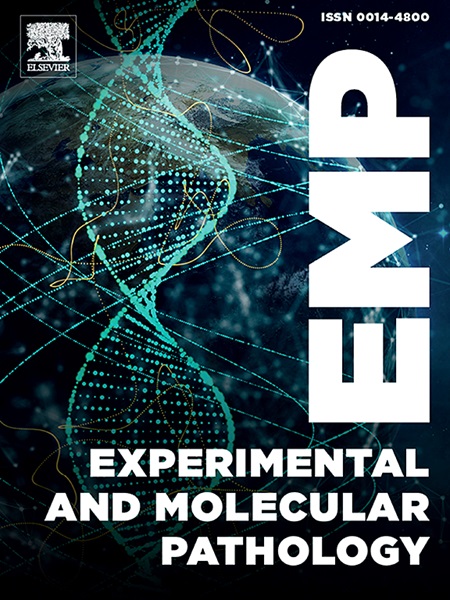The interplay involving oxidative stress and autophagy: Mechanisms, implications, and therapeutic opportunities
IF 3.7
4区 医学
Q2 PATHOLOGY
引用次数: 0
Abstract
Reactive oxygen species (ROS) are extremely reactive molecules produced during cellular metabolism, which play important roles in signaling and immune responses. Excessive ROS accumulation results in oxidative stress and cellular damage. As a result, autophagy (a cellular recycling process) is induced to overcome oxidative stress conditions by eliminating impaired cellular components. By selectively targeting and degrading dysfunctional mitochondria and peroxisomes through mitophagy and pexophagy, respectively, cells can effectively reduce ROS accumulation. Conversely, oxidative stress can disrupt autophagy, impairing protein aggregate clearance and thereby exacerbating ROS accumulation. In this review, we discuss the complex correlation between oxidative stress and autophagy, highlighting the mechanisms of regulation and their pathological implications. Additionally, we discuss the latest advances and challenges in developing autophagy-modulating therapies.
氧化应激和自噬的相互作用:机制、意义和治疗机会
活性氧(Reactive oxygen species, ROS)是细胞代谢过程中产生的极具活性的分子,在信号传导和免疫应答中发挥重要作用。过多的ROS积累导致氧化应激和细胞损伤。因此,诱导自噬(细胞循环过程)通过消除受损的细胞成分来克服氧化应激条件。细胞分别通过线粒体自噬和过氧化物酶体自噬选择性靶向和降解功能失调的线粒体和过氧化物酶体,可以有效地减少ROS的积累。相反,氧化应激可破坏自噬,损害蛋白质聚集清除,从而加剧ROS积累。在这篇综述中,我们讨论了氧化应激和自噬之间的复杂关系,重点介绍了调节机制及其病理意义。此外,我们还讨论了自噬调节疗法的最新进展和挑战。
本文章由计算机程序翻译,如有差异,请以英文原文为准。
求助全文
约1分钟内获得全文
求助全文
来源期刊
CiteScore
8.90
自引率
0.00%
发文量
78
审稿时长
11.5 weeks
期刊介绍:
Under new editorial leadership, Experimental and Molecular Pathology presents original articles on disease processes in relation to structural and biochemical alterations in mammalian tissues and fluids and on the application of newer techniques of molecular biology to problems of pathology in humans and other animals. The journal also publishes selected interpretive synthesis reviews by bench level investigators working at the "cutting edge" of contemporary research in pathology. In addition, special thematic issues present original research reports that unravel some of Nature''s most jealously guarded secrets on the pathologic basis of disease.
Research Areas include: Stem cells; Neoangiogenesis; Molecular diagnostics; Polymerase chain reaction; In situ hybridization; DNA sequencing; Cell receptors; Carcinogenesis; Pathobiology of neoplasia; Complex infectious diseases; Transplantation; Cytokines; Flow cytomeric analysis; Inflammation; Cellular injury; Immunology and hypersensitivity; Athersclerosis.

 求助内容:
求助内容: 应助结果提醒方式:
应助结果提醒方式:


